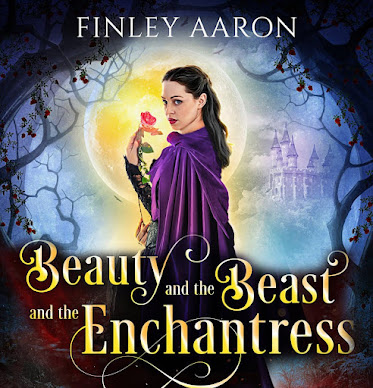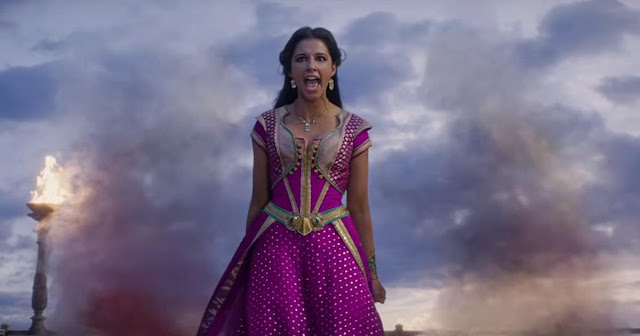Review: Beauty and the Beast and the Enchantress
"Beauty and the Beast" is one of the most popular fairy tales for novel adaptations next to "Cinderella." Given how similar these adaptations can become, it's important for authors to add some new elements to the story. Beauty and the Beast and the Enchantress by Finley Aaron is one book to attempt this. It is told from the perspective of the enchantress and parallels the romance between Beauty and the beast with a second love story that is the true heart of the book. The problem is that so much of this book focuses on the story we already know that the newer romance is rushed and underdeveloped. Still, it provides an interesting concept about some of the psychological and existential elements of the fairy tale that are often overlooked.
Beauty and the Beast and the Enchantress introduces Rosalina as the character who cursed a prince named Alexander to become a beast. However, she does not do this out of spite, nor does she put much consideration into the ramifications of her actions. Instead, she is propositioned by the immortal being known as Death to grant the last wishes of Prince Alexander's parents to make sure he lives to be a good king. Death makes an agreement with Rosalina that if she fails to do this, she must marry him. Like most people, Rosalina is not fond of Death and thus decides to curse Alexander so his physical appearance matches the ugliness in his heart in order to motivate him to find love and become a better person. She regrets this decision when she realizes how much Alexander and his kingdom suffer as a result of her actions and decides to do everything in her power to help him break the spell.
Though the book is a new twist on the classic tale, it focuses so much on the story elements we already know from "Beauty and the Beast" that many of the unique concepts of the book get lost in translation. Rosalina briefly mentions her past and how she gave up her mortality to become an enchantress after losing her to love, while Death subtly reveals his feelings toward her through obvious metaphors while discussing the relationship between Beauty and Alexander. So much of the story is spent with Rosalina and Death watching Beauty and Alexander's relationship bloom in secret and gossiping about their troubled love story that the author misses many opportunities to develop this new romance that is layered on top of the old one that we are already familiar with.
Still, there are many things to enjoy in this book, especially for long-time fans of "Beauty and the Beast." It allows a deeper introspection of the enchantress, a character many fans consider cruel or unreasonable. Here, she is given more motivation for her actions of cursing a prince whose worst sin was refusing to allow a stranger to sleep in his home. It is also clear that she also felt her actions were too harsh as she works in the background to help the prince restore his kingdom, track down Beauty, and give her a reason to stay with him long enough to break the curse. I liked the explanation Alexander gives for choosing Beauty as the one he wanted to make his queen. His interest in her has very little to do with her physical appearance. Instead, he is captivated by her resilience in handling difficult situations as well as her passion for expanding her political education by reading famous books such as Machiavelli's The Prince and Thomas More's Utopia.
Beauty and the Beast and the Enchantress is a unique take on a classic tale that overlays a love story everyone is familiar with a new one that addresses people's troubled existential relationship with death. Its biggest flaw is that the book is not daring enough to fully explore this new direction by revealing more about Rosalina's past and present relationships and how she overcomes that fear. Though I found the twist at the end extremely predictable, it could have had more of an emotional impact if the book had spent more time developing it instead of taking the safe route with a traditional retelling of "Beauty and the Beast." I would recommend this book to people who haven't read many other adaptations of the fairy tale and are looking for something a little different.












Comments